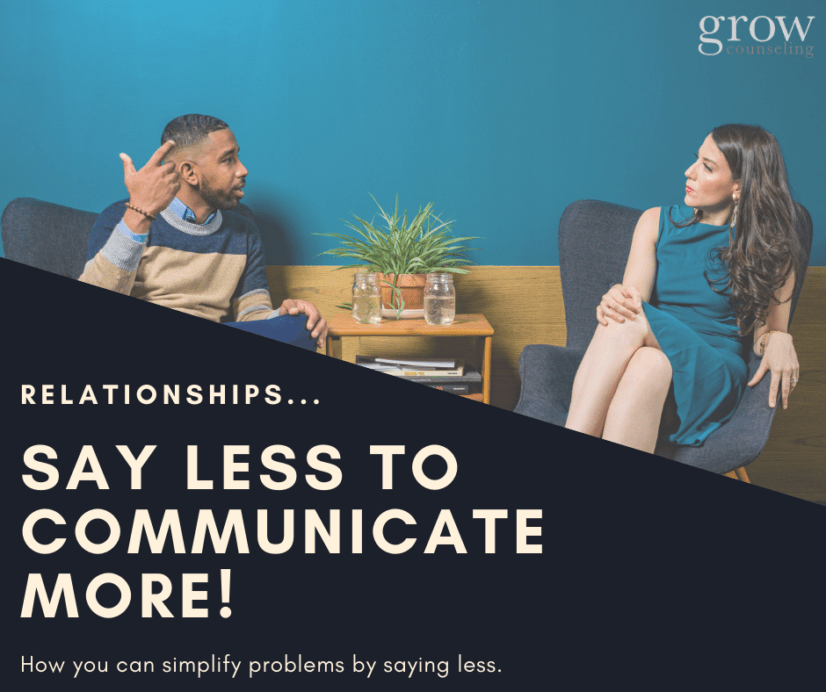Many couples struggle with the problem of repeating unresolved arguments over and over. Given time, these patterns can lead to resentment and disconnection. It’s not always obvious how to move forward in these puzzling moments.
While there is no one-size-fits-all approach, most research shows that human attachment needs shape relationships on a much deeper level and are longer lasting than skill-based interventions.
That said, it can be helpful to have a tool in your tool belt rather than doing nothing.
One useful tool for simplifying problems in relationships comes from Rule 10 of the book 12 Rules for Life: An Antidote to Chaos by Jordan Peterson, where he outlines the value in being precise in your speech. He states that, “Courageous and truthful words that will render your reality simple and habitable.”
When couples argue, they often bring up past hurts with lengthy explanations to be heard. In these moments, it often brings every problem from the past and the future to the present. While it is understandable, it is likely to be too much for a person to hear what you mean. They are unlikely to admit their mistakes or correct them, which is what probably what you wanted when you brought it up.
Instead, a person is likely to become defensive and fight with you or avoid you when you do this. “It is why so many couples stop communicating with each other.”
“When you are precise in how you speak, you simplify and reduce complexity by defining the problem in the present.” If you are vague, problems will get mixed up from the past or fears about the future.
The next time you feel upset by something your spouse has done, pay attention and think:
- What is wrong exactly?
- What do I want? (Not just what you don’t want!)
- Where am I wanting to go in the future?
“Once you have identified what is wrong and what you want, your job is to speak honestly and precisely to move forward.” This momentum creates positive emotions and hope that things can change.
Here is a guide for how to structure and simplify the conversation:
- This “exact/precise thing” is what is upsetting me.
- This “exact/precise thing” is what I want as an alternative, though I’m open to suggestions if you are specific.
- This “exact/precise thing” is what you could do so I will stop complaining.
This strategy is only a framework and will not solve every problem, though it will improve your chances of being heard the next time you find yourself stuck talking about every problem at once.
If you need a little extra guidance, finding a trained therapist can help you simplify communicating the issue so that you can be better understood.
Written by: Dustin Ellis

